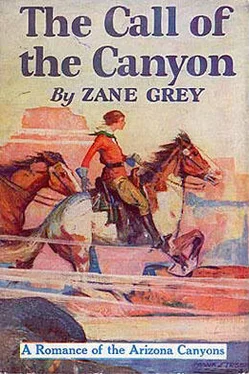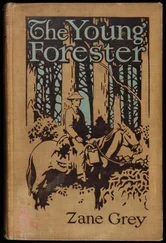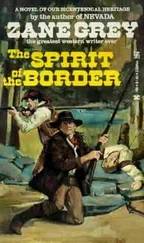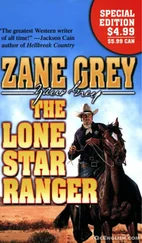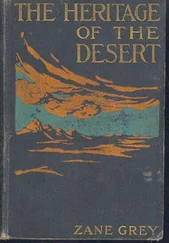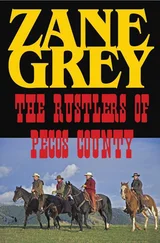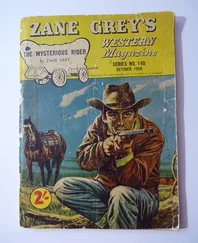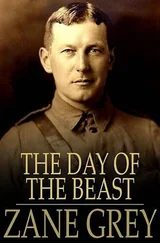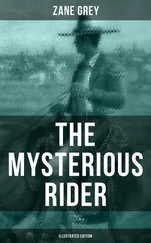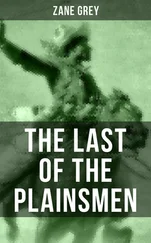Zane Grey - The Call of the Canyon
Здесь есть возможность читать онлайн «Zane Grey - The Call of the Canyon» весь текст электронной книги совершенно бесплатно (целиком полную версию без сокращений). В некоторых случаях можно слушать аудио, скачать через торрент в формате fb2 и присутствует краткое содержание. Жанр: Старинная литература, на английском языке. Описание произведения, (предисловие) а так же отзывы посетителей доступны на портале библиотеки ЛибКат.
- Название:The Call of the Canyon
- Автор:
- Жанр:
- Год:неизвестен
- ISBN:нет данных
- Рейтинг книги:5 / 5. Голосов: 1
-
Избранное:Добавить в избранное
- Отзывы:
-
Ваша оценка:
- 100
- 1
- 2
- 3
- 4
- 5
The Call of the Canyon: краткое содержание, описание и аннотация
Предлагаем к чтению аннотацию, описание, краткое содержание или предисловие (зависит от того, что написал сам автор книги «The Call of the Canyon»). Если вы не нашли необходимую информацию о книге — напишите в комментариях, мы постараемся отыскать её.
The Call of the Canyon — читать онлайн бесплатно полную книгу (весь текст) целиком
Ниже представлен текст книги, разбитый по страницам. Система сохранения места последней прочитанной страницы, позволяет с удобством читать онлайн бесплатно книгу «The Call of the Canyon», без необходимости каждый раз заново искать на чём Вы остановились. Поставьте закладку, и сможете в любой момент перейти на страницу, на которой закончили чтение.
Интервал:
Закладка:
"Well," he said, with a singular bluntness, "considering I didn't get any medals or bonuses, I'd like to draw a nice girl."
"You will," replied Carley, and made haste to change the subject. "By the way, did you meet Glenn Kilbourne in France?"
"Not that I remember," rejoined Burton, as he got up, rising rather stiffly by aid of his cane. "I must go, Miss Burch. Really I can't thank you enough. And I'll never forget it."
"Will you write me how you are getting along?" asked Carley, offering her hand.
"Yes."
Carley moved with him out into the hall and to the door. There was a question she wanted to ask, but found it strangely difficult of utterance. At the door Burton fixed a rather penetrating gaze upon her.
"You didn't ask me about Rust," he said.
"No, I–I didn't think of him–until now, in fact," Carley lied.
"Of course then you couldn't have heard about him. I was wondering."
"I have heard nothing."
"It was Rust who told me to come to you," said Burton. "We were talking one day, and he–well, he thought you were true blue. He said he knew you'd trust me and lend me money. I couldn't have asked you but for him."
"True blue! He believed that. I'm glad... . Has he spoken of me to you since I was last at the hospital?"
"Hardly," replied Burton, with the straight, strange glance on her again.
Carley met this glance and suddenly a coldness seemed to envelop her. It did not seem to come from within though her heart stopped beating. Burton had not changed–the warmth, the gratitude still lingered about him. But the light of his eyes! Carley had seen it in Glenn's, in Rust's–a strange, questioning, far-off light, infinitely aloof and unutterably sad. Then there came a lift of her heart that released a pang. She whispered with dread, with a tremor, with an instinct of calamity.
"How about–Rust?"
"He's dead."
The winter came, with its bleak sea winds and cold rains and blizzards of snow. Carley did not go South. She read and brooded, and gradually avoided all save those true friends who tolerated her.
She went to the theater a good deal, showing preference for the drama of strife, and she did not go anywhere for amusement. Distraction and amusement seemed to be dead issues for her. But she could become absorbed in any argument on the good or evil of the present day. Socialism reached into her mind, to be rejected. She had never understood it clearly, but it seemed to her a state of mind where dissatisfied men and women wanted to share what harder working or more gifted people possessed. There were a few who had too much of the world's goods and many who had too little. A readjustment of such inequality and injustice must come, but Carley did not see the remedy in Socialism.
She devoured books on the war with a morbid curiosity and hope that she would find some illuminating truth as to the uselessness of sacrificing young men in the glory and prime of their lives. To her war appeared a matter of human nature rather than politics. Hate really was an effect of war. In her judgment future wars could be avoided only in two ways–by men becoming honest and just or by women refusing to have children to be sacrificed. As there seemed no indication whatever of the former, she wondered how soon all women of all races would meet on a common height, with the mounting spirit that consumed her own heart. Such time must come. She granted every argument for war and flung against it one ringing passionate truth–agony of mangled soldiers and agony of women and children. There was no justification for offensive war. It was monstrous and hideous. If nature and evolution proved the absolute need of strife, war, blood, and death in the progress of animal and man toward perfection, then it would be better to abandon this Christless code and let the race of man die out.
All through these weeks she longed for a letter from Glenn. But it did not come. Had he finally roused to the sweetness and worth and love of the western girl, Flo Hutter? Carley knew absolutely, through both intelligence and intuition, that Glenn Kilbourne would never love Flo. Yet such was her intensity and stress at times, especially in the darkness of waking hours, that jealousy overcame her and insidiously worked its havoc. Peace and a strange kind of joy came to her in dreams of her walks and rides and climbs in Arizona, of the lonely canyon where it always seemed afternoon, of the tremendous colored vastness of that Painted Desert. But she resisted these dreams now because when she awoke from them she suffered such a yearning that it became unbearable. Then she knew the feeling of the loneliness and solitude of the hills. Then she knew the sweetness of the murmur of falling water, the wind in the pines, the song of birds, the white radiance of the stars, the break of day and its gold-flushed close. But she had not yet divined' their meaning. It was not all love for Glenn Kilbourne. Had city life palled upon her solely because of the absence of her lover? So Carley plodded on, like one groping in the night, fighting shadows.
One day she received a card from an old schoolmate, a girl who had married out of Carley's set, and had been ostracized. She was living down on Long Island, at a little country place named Wading River. Her husband was an electrician–something of an inventor. He worked hard. A baby boy had just come to them. Would not Carley run down on the train to see the youngster?
That was a strong and trenchant call. Carley went. She found indeed a country village, and on the outskirts of it a little cottage that must have been pretty in summer, when the green was on vines and trees. Her old schoolmate was rosy, plump, bright-eyed, and happy. She saw in Carley no change–a fact that somehow rebounded sweetly on Carley's consciousness. Elsie prattled of herself and her husband and how they had worked to earn this little home, and then the baby.
When Carley saw the adorable dark-eyed, pink-toed, curly-fisted baby she understood Elsie's happiness and reveled in it. When she felt the soft, warm, living little body in her arms, against her breast, then she absorbed some incalculable and mysterious strength. What were the trivial, sordid, and selfish feelings that kept her in tumult compared to this welling emotion? Had she the secret in her arms? Babies and Carley had never become closely acquainted in those infrequent meetings that were usually the result of chance. But Elsie's baby nestled to her breast and cooed to her and clung to her finger. When at length the youngster was laid in his crib it seemed to Carley that the fragrance and the soul of him remained with her.
"A real American boy!" she murmured.
"You can just bet he is," replied Elsie. "Carley, you ought to see his dad."
"I'd like to meet him," said Carley, thoughtfully. "Elsie, was he in the service?"
"Yes. He was on one of the navy transports that took munitions to France. Think of me, carrying this baby, with my husband on a boat full of explosives and with German submarines roaming the ocean! Oh, it was horrible!"
"But he came back, and now all's well with you," said Carley, with a smile of earnestness. "I'm very glad, Elsie."
"Yes–but I shudder when I think of a possible war in the future. I'm going to raise boys, and girls, too, I hope–and the thought of war is torturing."
Carley found her return train somewhat late, and she took advantage of the delay to walk out to the wooded headlands above the Sound.
It was a raw March day, with a steely sun going down in a pale-gray sky. Patches of snow lingered in sheltered brushy places. This bit of woodland had a floor of soft sand that dragged at Carley's feet. There were sere and brown leaves still fluttering on the scrub-oaks. At length Carley came out on the edge of the bluff with the gray expanse of seat beneath her, and a long wandering shore line, ragged with wreckage or driftwood. The surge of water rolled in–a long, low, white, creeping line that softly roared on the beach and dragged the pebbles gratingly back. There was neither boat nor living creature in sight.
Читать дальшеИнтервал:
Закладка:
Похожие книги на «The Call of the Canyon»
Представляем Вашему вниманию похожие книги на «The Call of the Canyon» списком для выбора. Мы отобрали схожую по названию и смыслу литературу в надежде предоставить читателям больше вариантов отыскать новые, интересные, ещё непрочитанные произведения.
Обсуждение, отзывы о книге «The Call of the Canyon» и просто собственные мнения читателей. Оставьте ваши комментарии, напишите, что Вы думаете о произведении, его смысле или главных героях. Укажите что конкретно понравилось, а что нет, и почему Вы так считаете.
